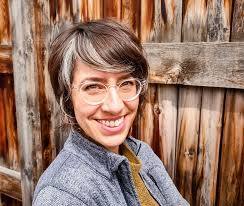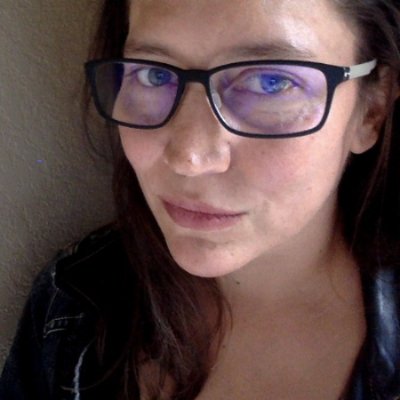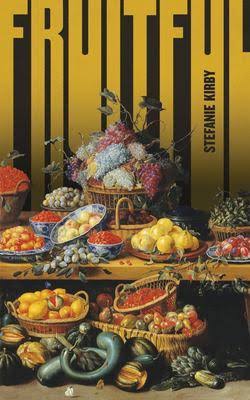‘The uterus belongs to the family’
A review of Front Range poet Stefanie Kirby’s award-winning chapbook, Fruitful
A review of Front Range poet Stefanie Kirby’s award-winning chapbook, Fruitful
Fruitful by Stefanie Kirby, who lives and works on the Colorado Front Range, has its title elongated on its front cover, and reads with stretched goldish letters that disappear toward its bottom against a solid-black background. The word partially dissolves behind a painting by 17th-century Dutch artist Jan van Kessel: baskets of fruit and flowers in full and glorious fecundity, albeit detached from whence they grew. In the poems careening through these semi-sparse pages, surging hormones due to pregnancy and grief due to a miscarriage dominate. Publication of Fruitful stands as another and possibly healing birth of sorts, having won this year’s chapbook competition at Driftwood Press of Austin, Texas.

Stefanie Kirby
Desperation exudes from many of Kirby’s lines, defiant of absolutism: “When I say cure, I mean the opposite: falling short of preservation,” reads “The Uterus Belongs to the Family,” suggesting strongly that rationality might be subsumed by the power of grief. It ends with a combination of description and explanation of a “body that wants to be full.” Loss and life, in Kirby’s nutshell Fruitful worldview, necessarily—fortunately and unfortunately—contrast and coexist.
In fact, Kirby wrote these poems following a miscarriage that she experienced somewhat like a stillbirth (the difference in her case being a mere week in clinical terms, putting the author at irksome odds with not only death but laboratory language). In the midst of this morass, I felt inclined to look at Martha Stewart’s suggestions regarding what do for a baby shower: “Choose bright colors, pretty flower arrangements, fun balloon displays, and a coordinated palette.” Kirby does the honest opposite, which despite her love for her two subsequent, living daughters, remains scathingly cognizant of everyone’s ultimate, mortal reality—a realization spurred by the loss of her third child.
Kirby’s real-life levelheadedness and practicality come through in an interview with acclaimed poet Sara Moore Wagner at the back of the book that acknowledges a political aspect to these poems, despite the fact that they’re not overtly addressing any such thing. She is quite articulate and direct in the intellectual summations she poses as questions: “How can one organ be tied so intimately to both life and death? How can something be so devastating inside a body without the body itself being aware?”
In Fruitful, Kirby doesn’t answer these painful questions. Rather, she literally and beautifully endures them.
Click here for more from Sarah Valdez.

